How To Get Rid Of Spiders In The House
How To Get Rid Of Spiders In The House
Fun (and nightmarish) fact of the day: there are over 3,000 species of spiders in the U.S. alone. This explains why spiders constantly invade homes and businesses across the country, regardless of the season. Spiders only live where they have a reliable food source and a safe hiding spot for them and their future egg sacs. An ant-infested shed would be a true paradise for any household spider, for instance.
Each region has its own common species, but the most notable invasive species include house spiders, black widows, brown recluses, and wolf spiders. All spiders only lay eggs where they feel safe and comfortable. If you find any egg sacs in your house, it’s a sign that the adult spider has been there for a long time. But don’t panic! It’s entirely possible to both eliminate and prevent spiders, so let’s discuss 6 of the easiest ways to kick spiders to the curb.
Clean The Floors
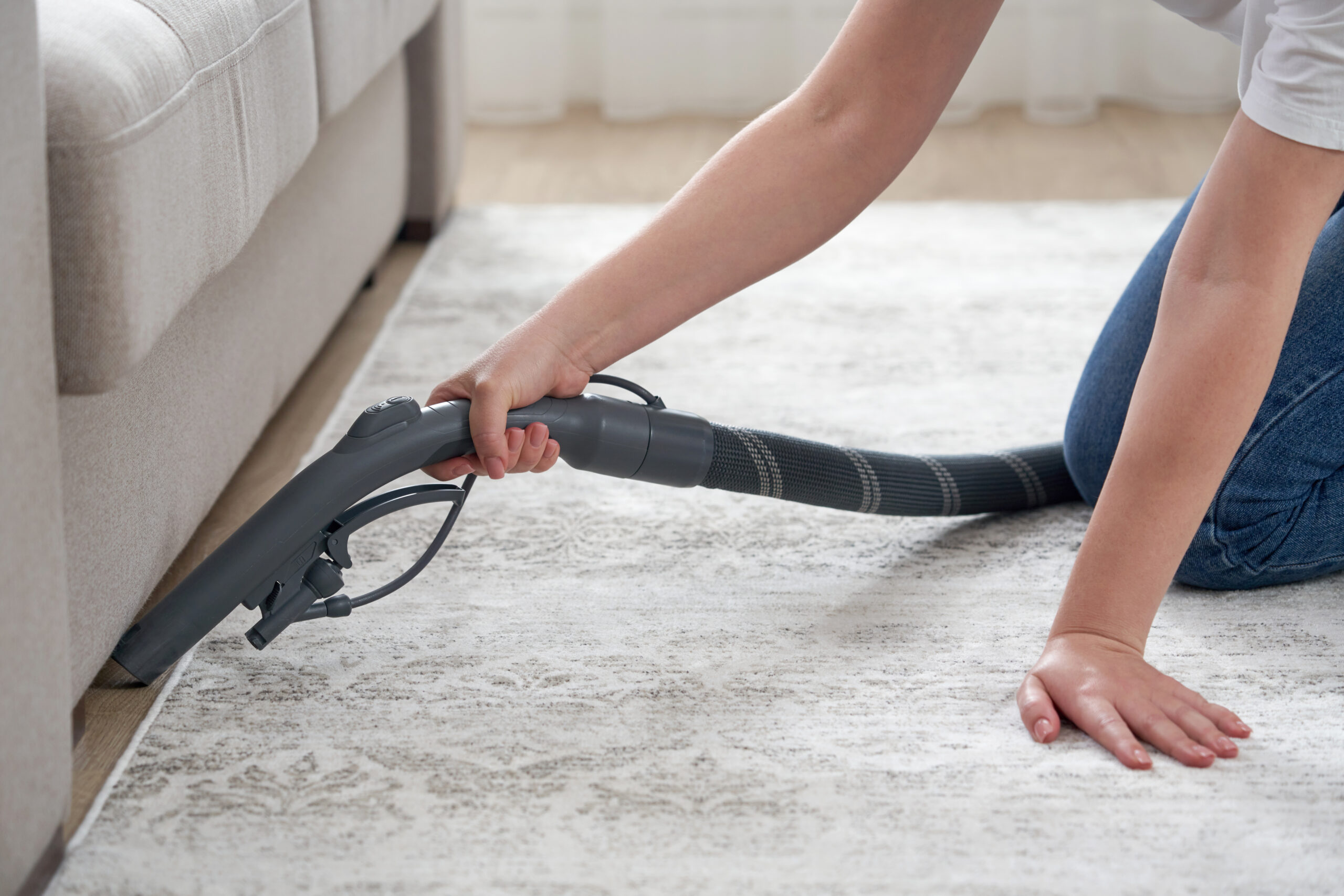
At the expense of sounding like your parent who’s telling you to do your chores, we recommend keeping the floors as neat as possible. Clutter, dirt, dust, and pet dander attract pests, who then attract spiders. Also, any tiny insects that die on the floor are easy targets for hungry arachnids. The spiders can build their webs in the corner of the room, grab their deceased prey, and retreat back to their habitat to feast.
The cleaning methods depend on your preferences and flooring types. Vacuuming, mopping, and sweeping are the best ways to ensure your floors are clean and free of spiders. Make sure to clean in the hidden places that don’t get much attention, as this is where spiders prefer to live. This includes under furniture, in corners, and behind appliances. If you vacuum up any pests — including spiders — dump the contents into a garbage bag and place it in the outdoor trash can to get them away from your home.
Remove All Webs
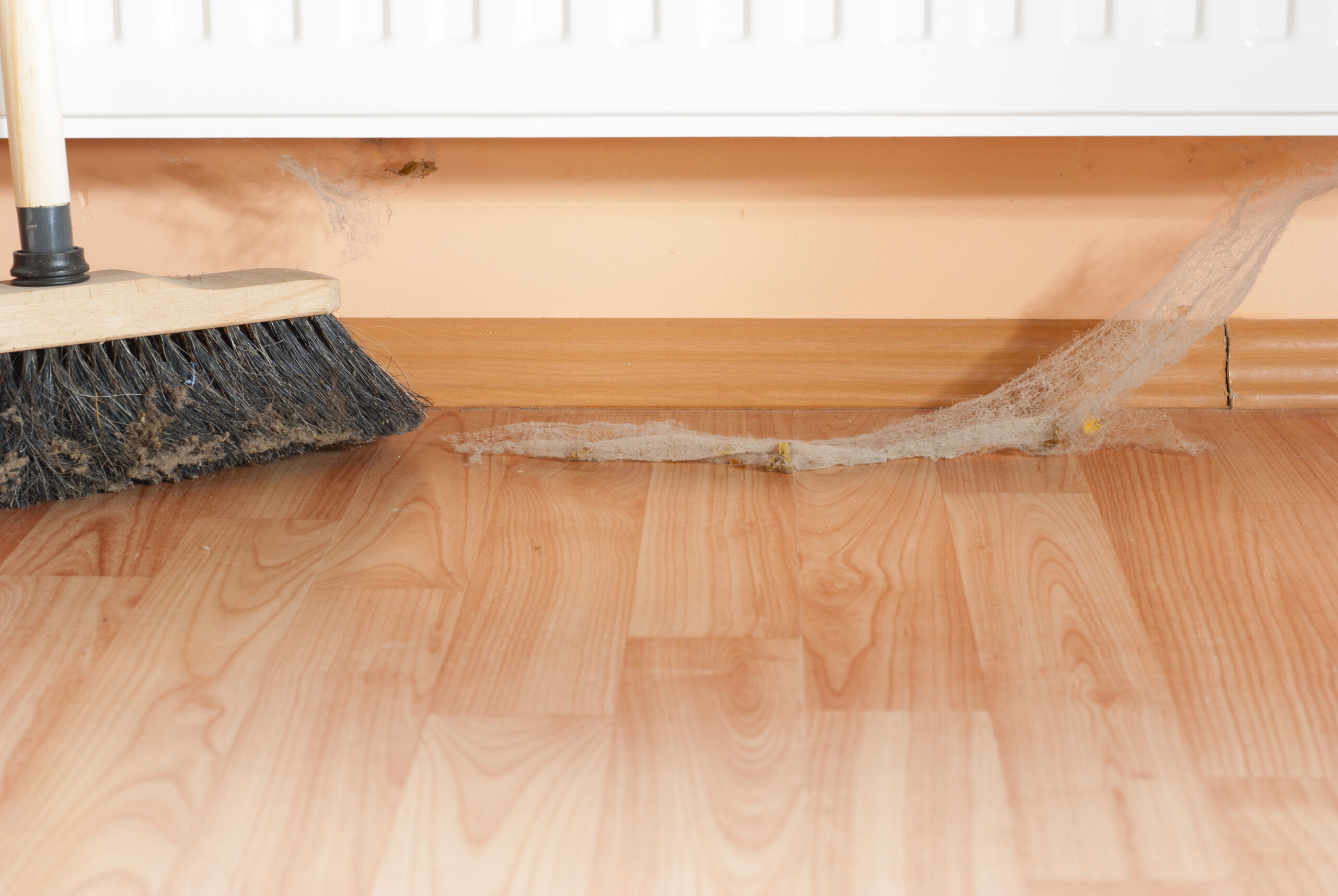
Many spiders prefer to spend most of their time in their webs, but some create just enough strands to trap their prey. These pests also aren’t afraid to reuse old webs from other spiders. Any webs that are left alone will be used in one way or another, either by a homeless spider or a helpless insect that gets caught. Unfortunately, a web with trapped insects is even more appealing to spiders, so it’s important to remove all spiderwebs ASAP.
The best way to remove webs is to use a long tool that keeps the web away from you. If you’ve ever accidentally walked through a spiderweb outdoors, you know the struggle of trying to peel the sticky strands off your body. Use a broom or a long brush to remove any webs you find in room corners, under furniture, and on interior lights. Watch out for any spiders hiding in the webs! Check each web before removing it, and squish the spider with your tool of choice.
Turn Off The Lights
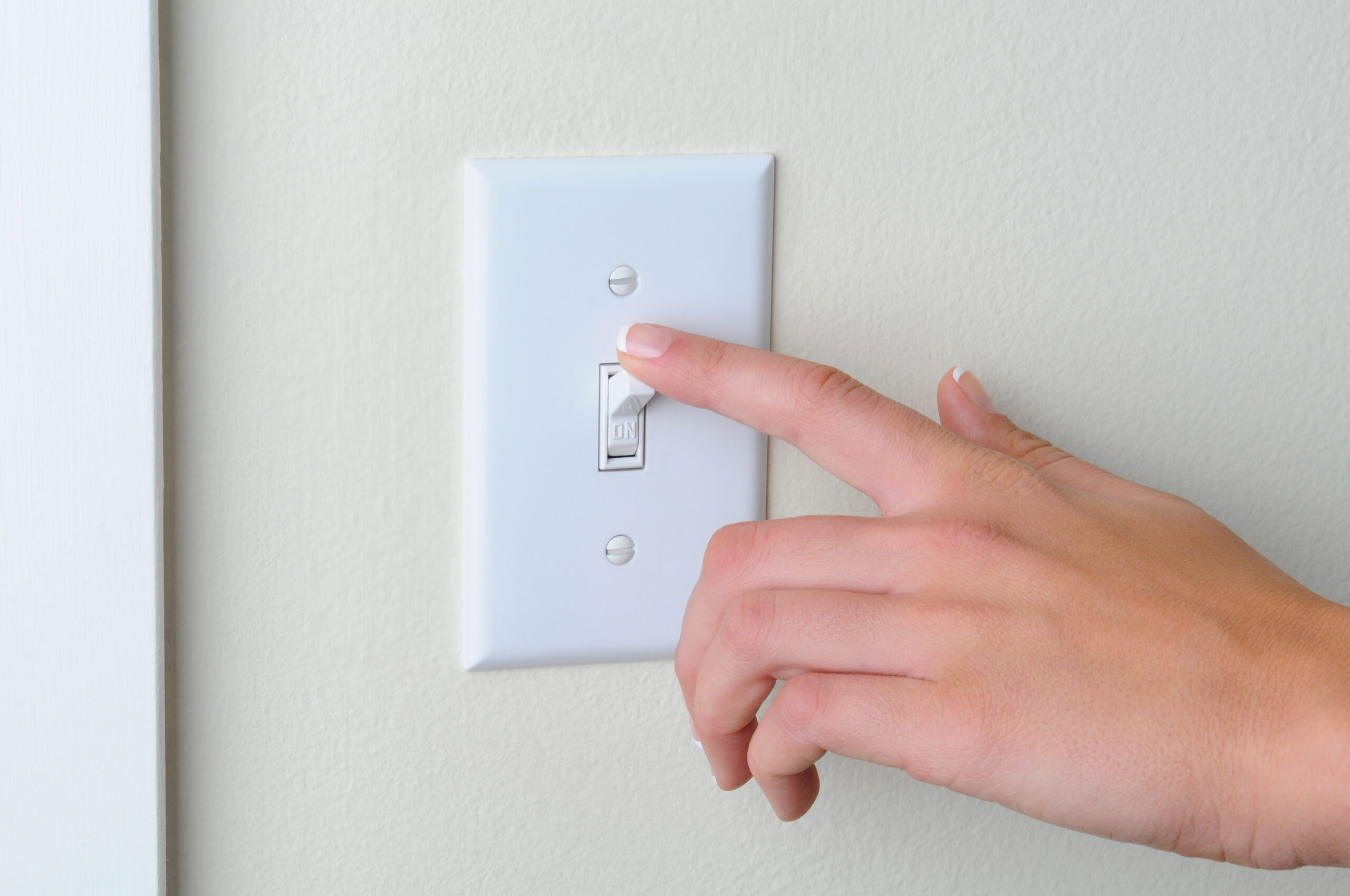
By this, we don’t mean living in total darkness (spiders would love that). We simply mean turning off unnecessary lights at night, especially before everyone goes to bed. There are a couple of reasons why lights attract spiders to the scene. For one, many nocturnal pests go towards the nearest light when the sun goes down. Spiders then have their choice of prey, with moths and crickets being the most common. Another reason is that artificial lights alert spiders to a protected habitat, so they want to get inside their newfound shelter.
The lights that commonly attract spiders are the larger ones, like porch lights and ceiling lights. Before hitting the hay, turn off every light that you don’t need to leave on through the night. This helps to prevent both spiders and their prey since there aren’t a lot of lights leading them home. If you like to leave one or two exterior lights on, try to point them away from the doors and windows. Any lights that shine directly on these features only encourage creepy-crawlies to make their way inside.
Remove The Clutter
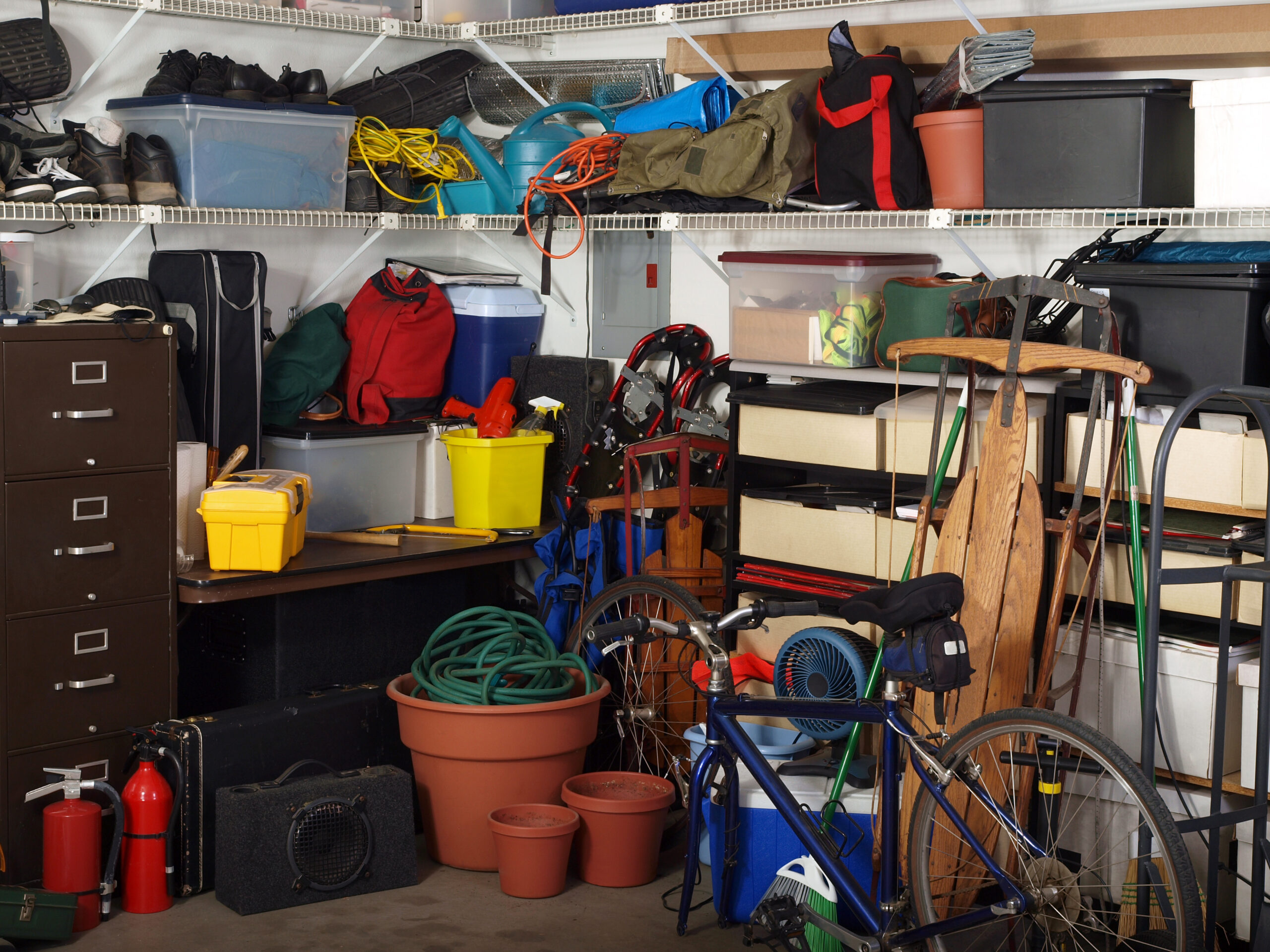
Easier said than done, we know. But think of it this way: the less objects cluttering your space, the fewer hiding spots spiders have. They like hiding among boxes and random items in a dry area, such as garages, basements, and attics. It’s easy for them to build webs and lay egg sacs in a cluttered space because spiders usually go unnoticed in a busy setting. Plus, any natural debris (leaf litter, dirt, crumbs) attracts hungry insects and thereby encourages spiders to live within the mess.
It’s tricky to keep spiders out of our storage areas since we don’t usually visit those rooms every day. Any isolated, dry, and dark space is a spider’s ideal habitat, so this tip requires a bit of extra work to keep the spiders away. An efficient way to discourage spiders from moving in is to keep all of your stored items in plastic bins rather than cardboard boxes. The airtight lids don’t leave room for invasive pests, so your possessions are protected against spiders and their prey. Also, try to reduce clutter by stacking containers and decluttering unused items when you can.
Spray & Smash
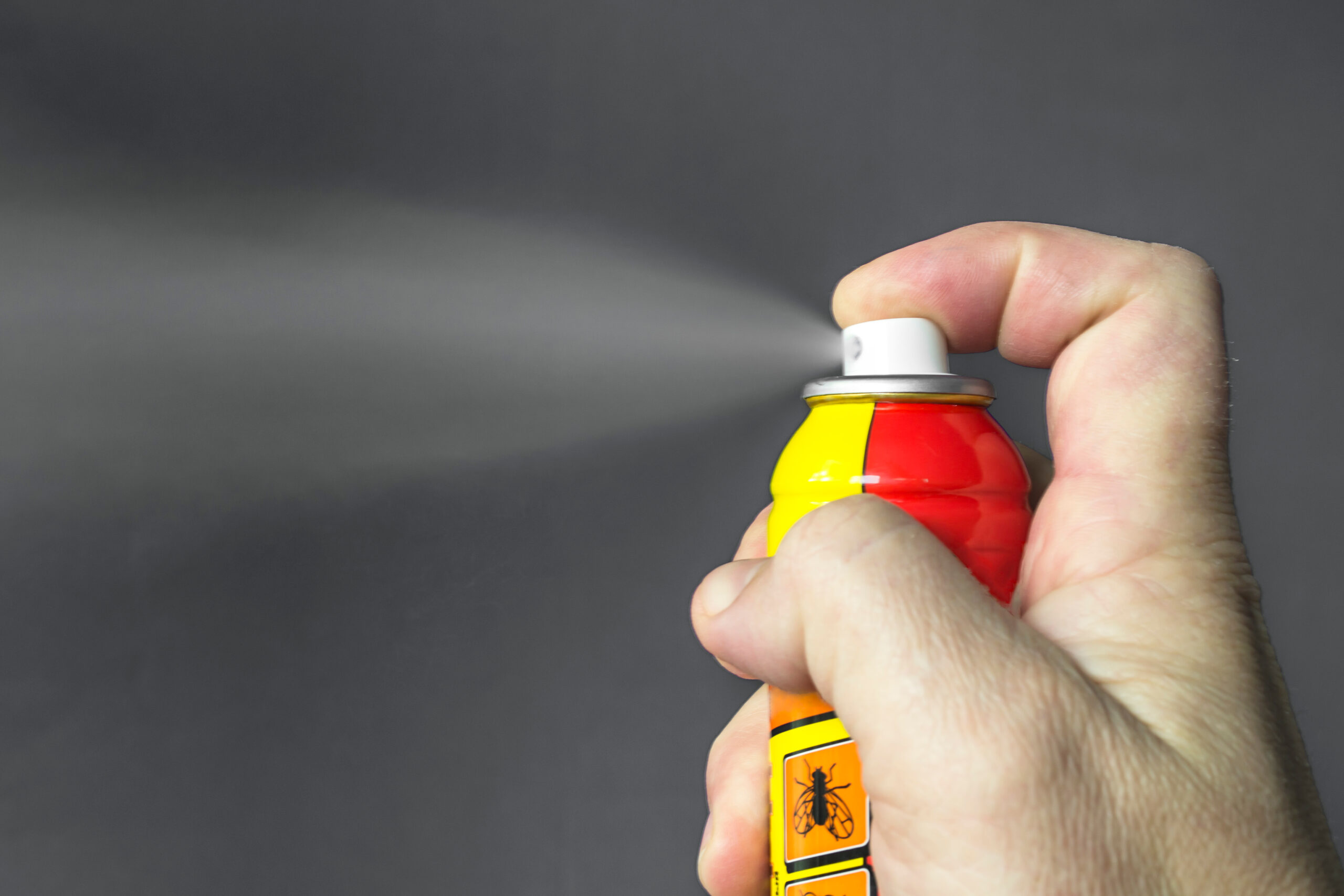
This tip is not as simple for anyone with arachnophobia or a general fear of spiders. But for those who prefer to take matters into their own hands, this method is a quick way to rid your home of a surprise spider. Some spiders are small enough to squish with a tissue and not much thought. Other species require a bit more caution on our part, especially when it comes to their venomous bites. Either way, one thing is for sure: any spider found in the home needs to be dealt with immediately.
Brown recluses, black widows, and wolf spiders should be handled with the utmost care because their bites cause painful symptoms for humans. This is the time to utilize the “spray & smash” method in order to keep the spider as far from you as possible. When you find a spider in your house, spray it with pest repellent or a store-bought insecticide. Keep in mind: these products will not kill the spider on their own, which is where the “smash” method comes into play. Once you spray the spider enough to incapacitate it, smash it with a sturdy object (shoe, book, rock, etc.) to make sure it’s completely dead. Carefully remove the spider with a paper towel and throw it away to prevent other carnivorous species from finding it.
Solve Pest Issues
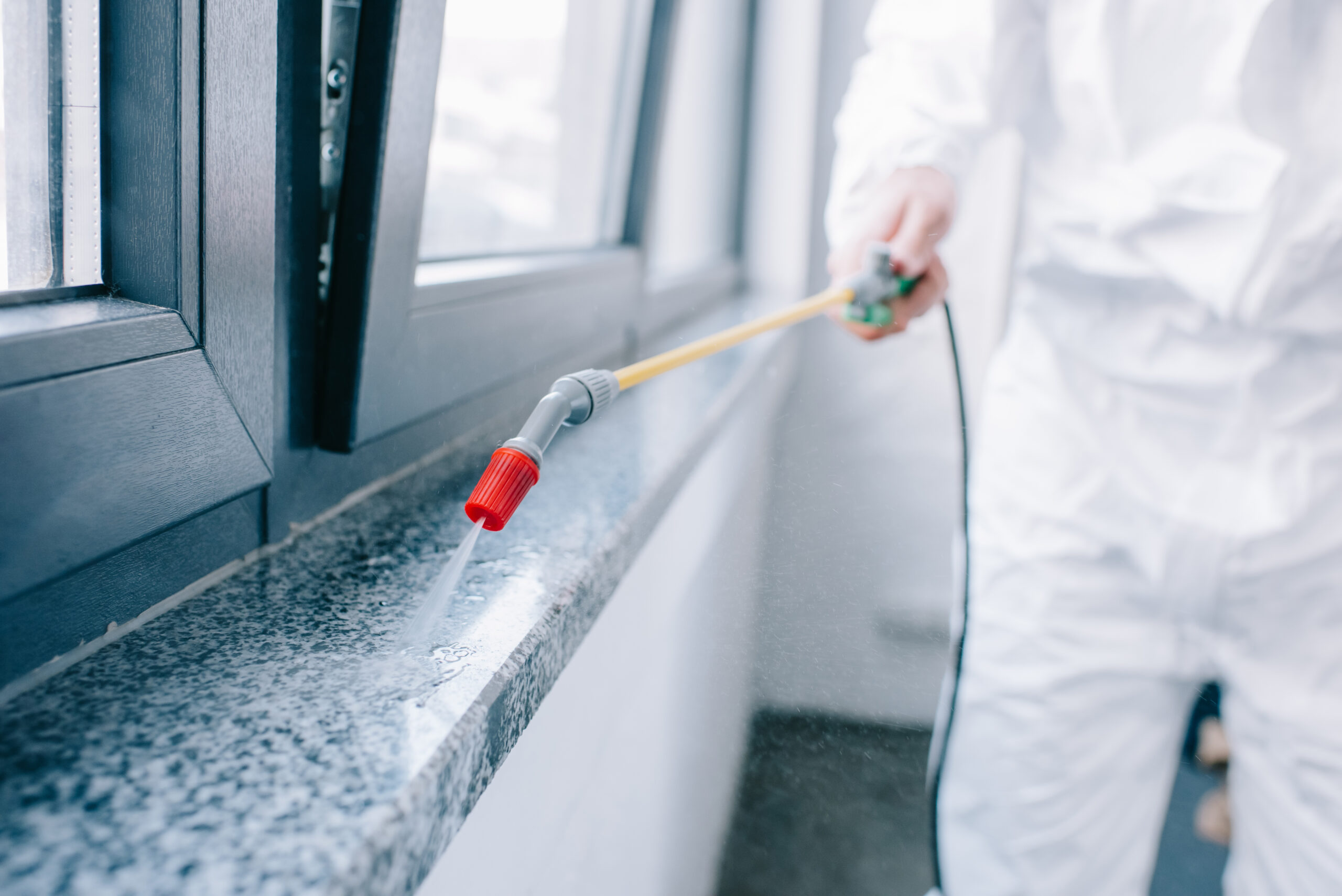
Removing a spider’s food source is the easiest way to keep spiders out of your home as often as possible. Since they only live where they have a steady supply of food, spiders are less motivated to invade a pest-free home. The warmth and isolation are still appealing, so this isn’t an exact science. But the spider populations are certainly lower in areas without insects, so you can draw your own conclusions here.
The most important pest issue to solve is, of course, an infestation. No one wants an army of insects living in their home — well, except spiders. They are often found near untreated infestations because the spiders then have a buffet of food available to them at all times. These arachnids frequently prey on invasions of roaches, beetles, ants, and crickets. By stopping the infestation, local spiders start to search for a new pest-filled place to invade. However, store-bought products and DIY methods aren’t the most consistent at eliminating pests since the root of the problem isn’t addressed. This can only be addressed by a trained professional and their targeted products.
Green Is A Spider’s Worst Nightmare
Spiders are independent critters, but they’re still unwelcome in our homes at all times. At Green Pest Services, our experienced technicians understand the stress that comes with finding a family of spiders or other pests in your space. We are dedicated to solving every pest issue as safely and efficiently as possible. After inspecting the property for signs of pest activity, our team creates a treatment plan that’s completely customized to solve the specific issues at hand. We guarantee that our environmentally-friendly treatments are always effective against pests but safe for people and pets. For a free quote on the most reliable spider services around, contact us today!
Citations
How to get rid of spiders. (n.d.). The Home Depot. Retrieved February 14, 2024, from https://www.homedepot.com/c/ab/how-to-get-rid-of-spiders/9ba683603be9fa5395fab90ab04bca3
How to get rid of spiders before you’re crawling with them. (n.d.). Terminix. Retrieved February 15, 2024, from https://www.terminix.com/spider-control/removal/
How to get rid of spiders in your house. (n.d.). Today’s Homeowner. Available at https://todayshomeowner.com/pest-control/spiders/ (Accessed on February 15, 2024).
McFarlane, J. (2023, August 15). 8 ways to get rid of spiders and keep them from moving in. RealHomes. Available at https://www.realhomes.com/advice/house-spiders-how-to-get-rid-of-spiders-humanely (Accessed on February 15, 2024).
Zito, B. (2022, November 21). How to get rid of spiders. Forbes Home. Available at https://www.forbes.com/home-improvement/pest-control/how-to-get-rid-of-spiders/ (Accessed on February 14, 2024).

